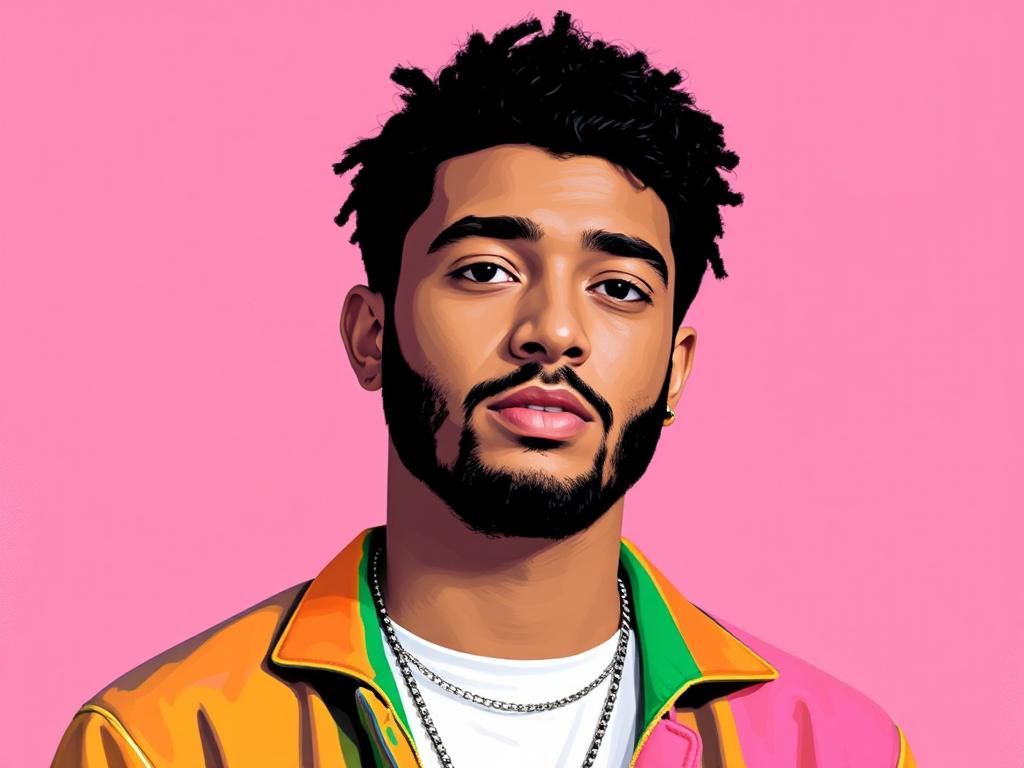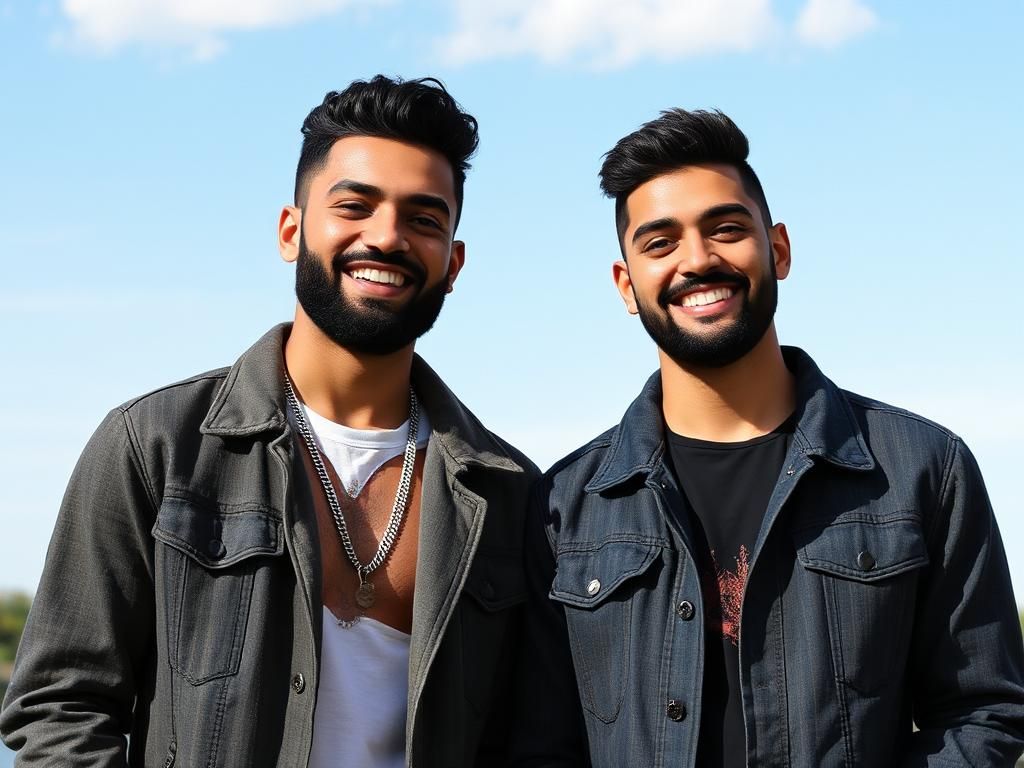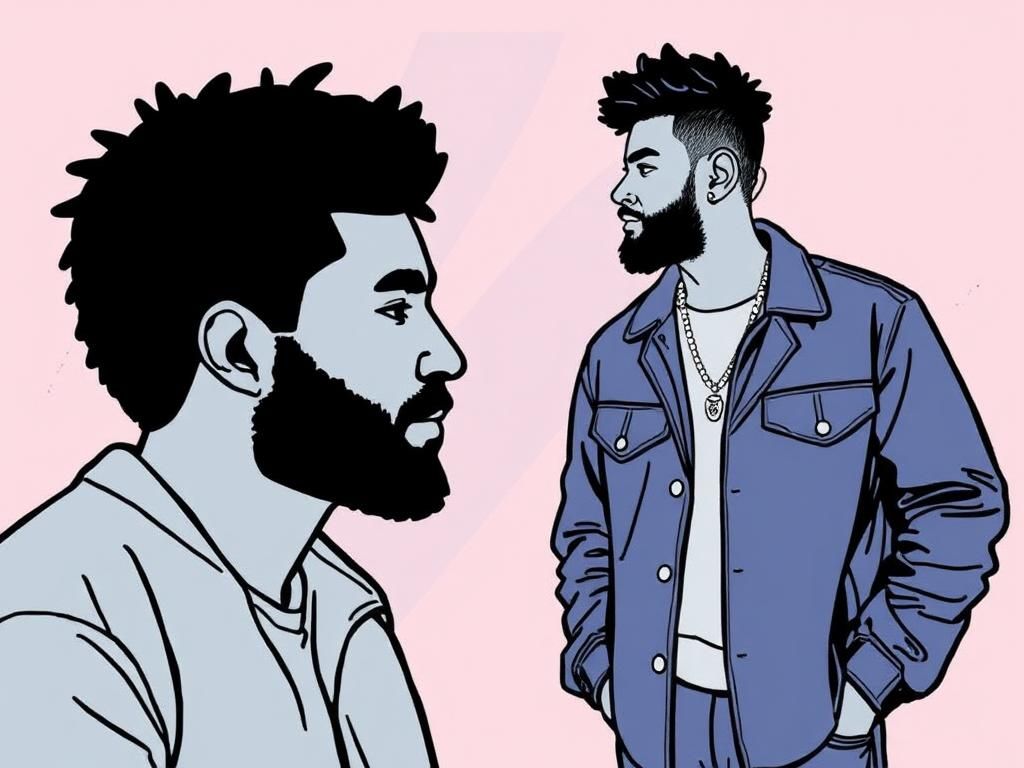Khalid, a name that resonates with many music lovers around the globe, has emerged as a compelling artist with a complex public persona. The discussion surrounding the keyword “khalid gay” is especially relevant as it sheds light on the intersections of music, sexuality, and representation. Khalid’s work transcends mere melodies; it dialogues with the nuances of identity, culture, and social justice. This article aims to dive deep into Khalid’s life and career while exploring the wider implications of his artistry, particularly regarding LGBTQ+ issues.
Who is Khalid?
Background
Khalid Donnel Robinson, known simply as Khalid, was born on April 11, 1998, in Fort Stewart, Georgia. With a military family, he moved frequently during his childhood, which enriched his cultural perspectives. Khalid began his musical journey at an early age, drawing inspiration from an array of genres. His breakout single, *Location*, released in 2017, quickly catapulted him into the spotlight, showcasing a sound that effortlessly blends R&B, pop, and electronic influences.
Musical Style and Influences
Khalid’s musical style can be best described as genre-blending, combining elements of contemporary R&B, pop, and alternative. His tracks resonate with young audiences, often reflecting on themes of love, heartbreak, and social issues. Influenced by artists such as Frank Ocean and SZA, Khalid’s music mirrors personal experiences and broader societal topics. His ability to connect with listeners through honest lyricism speaks volumes about his art.
Khalid’s Public Persona
Image and Representation
In the media, Khalid is portrayed as a relatable figure whose authenticity shines through. He represents a fresh voice in an industry often criticized for its lack of diversity and inclusivity. Khalid’s image challenges norms, encouraging conversations around representation in music and pop culture, particularly in relation to the “khalid gay” dialogue.
Advocacy and Activism
Khalid has established himself as an advocate for social justice, particularly focusing on issues that resonate with marginalized communities. His music often touches on LGBTQ+ themes, with songs that convey messages of acceptance and love. Through his public statements and actions, Khalid has continued to support LGBTQ+ causes, enhancing his role as an ally.
Understanding Sexuality and Labels
Open Conversations about Sexuality in Music
As artists increasingly discuss sexuality, Khalid stands out for his readiness to challenge traditional norms. His openness about identity fosters an environment where young fans feel empowered to express their own experiences and questions surrounding sexuality. By addressing these themes in his music, he helps normalize conversations about diverse sexual orientations.

Exploring Khalid’s Sexual Orientation
Despite public speculation regarding his sexual orientation, Khalid has kept aspects of his identity private. His mystery around this topic has fueled discussions, prompting fans and media to engage in conversations about how labels can confine personal experience. The resulting dialogue contributes positively to Khalid’s fanbase, many of whom appreciate his nuanced approach to identity.
Khalid’s Impact on the LGBTQ+ Community
Representation in Music
Khalid’s influence extends to the LGBTQ+ community, particularly in terms of visibility in the music industry. His collaborations with LGBTQ+ artists and inclusive messaging resonate with listeners who identify within the community. Songs like *Better* and *Talk* carry undertones that speak to themes of love and understanding, making them relatable to a broader audience.
Fan Interactions and Support
Khalid is known for his positive interactions with fans, many of whom are part of the LGBTQ+ community. Stories of personal encounters reveal Khalid’s supportive demeanor, whether it’s through social media engagements or live performances. The feedback from fans often highlights how Khalid’s music has provided solace and affirmation during challenging times.
Criticism and Controversies
Backlash from Public and Media
While Khalid has enjoyed significant success, he has also faced criticism regarding his representation of identity and social issues. Certain segments of the media have questioned the sincerity of his advocacy, raising important discussions about societal acceptance. However, this scrutiny often reflects a broader societal tension regarding celebrity activism and its authenticity.
Navigating Identity in the Public Eye
Navigating personal identity in the spotlight can be challenging. Khalid’s cautious approach to sharing his identity amidst public scrutiny exemplifies the pressures faced by artists today. By comparing him to other artists who openly discuss their identities, it becomes clear that the landscape has both changed for the better and remained fraught with challenges.
Table: Khalid’s Key Contributions and Themes

| Key Contribution | Themes | Notable Songs | Impact |
|---|---|---|---|
| Musical Style | Love, Heartbreak, Acceptance | *Location*, *Talk* | Resonance with youth and LGBTQ+ listeners |
| Advocacy | Social Justice, LGBTQ+ Representation | *Better*, *Self* | Support for marginalized communities |
| Community Engagement | Supportive Fan Interactions | *OTW*, *Cheers* | Empowerment of fans through music |
Conclusion
In summary, Khalid stands as a significant figure in the discussion about “khalid gay” and LGBTQ+ representation in the music industry. His music and public advocacy provide a platform for important conversations about identity, acceptance, and the diversity of experiences within the LGBTQ+ community. The importance of representation in music cannot be overstated, and Khalid’s journey illustrates the power of artistry as a tool for social change.
Frequently Asked Questions
Q1: Is Khalid openly gay?
A1: Khalid has not publicly identified himself with any specific sexual orientation, maintaining an element of privacy around his personal life.
Q2: How does Khalid support LGBTQ+ issues?
A2: Khalid addresses LGBTQ+ themes in his music and has made public statements in support of LGBTQ+ rights, showcasing his commitment to social justice.
Q3: What are some of Khalid’s most impactful songs related to LGBTQ+ themes?
A3: Songs like *Better* and *Talk* resonate with themes of love and acceptance, making them relatable to LGBTQ+ listeners.
Q4: Has Khalid faced any backlash related to his image?
A4: Yes, Khalid has encountered criticism regarding his representation and activism, highlighting the challenges faced by artists today.
Q5: How does Khalid impact his fans personally?
A5: Khalid’s music provides comfort and affirmation to many fans, particularly those from the LGBTQ+ community, through themes of understanding and acceptance.
Q6: What is Khalid’s musical style?
A6: Khalid’s music is characterized by a blend of R&B, pop, and electronic elements, appealing to a wide audience.
Q7: How do Khalid’s songs reflect his experiences?
A7: Khalid’s lyrics often draw from personal experiences, allowing listeners to connect deeply with his storytelling.
Q8: What role does music play in discussions about sexuality?
A8: Music serves as a powerful medium for discussing sexuality, providing a platform for artists like Khalid to challenge norms and engage listeners.
Q9: Where can I find more information about Khalid’s music?
A9: Khalid’s discography is available on platforms like Spotify and Apple Music, as well as on his official website.
Q10: How can I support LGBTQ+ advocacy in my community?
A10: Engaging with local organizations, attending events, and educating others about LGBTQ+ issues are great ways to show support.
Further Reading and Resources
For more information about Khalid, consider following him on his social media accounts. You can also explore his music on platforms like Spotify and Apple Music. There are various resources available for learning about LGBTQ+ representation in the arts, including articles from organizations such as GLAAD and HRC. Understanding the complexities of identity in the music industry can help foster awareness and support for marginalized communities.

